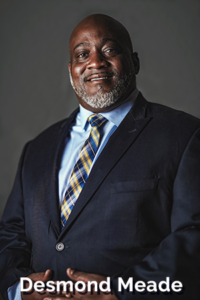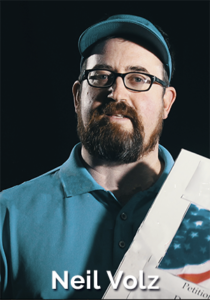We are now 46 days away from a historic election.
Here in Michigan, having a felony or misdemeanor conviction on your record is no barrier to voting, so long as you’re not currently incarcerated and serving a sentence. That means that the moment you leave jail or prison, you can vote. If you’re on probation or parole, you can vote. Even if you are incarcerated in jail on election day and awaiting adjudication — you still have the right to vote.
People in other states live under different laws. Iowa, Kentucky and Virginia won’t allow anyone with a felony conviction to vote again — ever. On the other end of the scale, Maine and Vermont allow people currently incarcerated and serving a sentence to vote.
But imagine you live in Florida and have a felony on your record. With less than 50 days to go to a monumentally important election — do you know if you could vote?
If you don’t know, you’re in good company. The voting rights of formerly incarcerated people in Florida have been subjected to a protracted legal fight that began when a group of dedicated criminal justice reform advocates called for change.
 The Florida Rights Restoration Coalition gathered enough signatures to put Florida’s Amendment 4 on the ballot in 2018. It said people with a felony on their record should have voting rights restored once their sentence was completed. Voters agreed by a vote of 64 percent in favor, restoring the vote to about 1.4 million Florida residents.
The Florida Rights Restoration Coalition gathered enough signatures to put Florida’s Amendment 4 on the ballot in 2018. It said people with a felony on their record should have voting rights restored once their sentence was completed. Voters agreed by a vote of 64 percent in favor, restoring the vote to about 1.4 million Florida residents.
We are so proud to feature Desmond Meade, the executive director of the Florida Rights Restoration Coalition, and Neil Volz, the organization’s Deputy Director, at our 2020 Virtual Annual Meeting on Oct. 8. They will discuss the effort to bring voting rights to people with a criminal record in Florida, including the historic win at the polls in November 2018. Click here to sign up.
Unfortunately, Meade and Volz’s moment of celebration didn’t last. Some state legislators and Florida Gov. Ron DeSantis wouldn’t let the voters have the final say. The state Legislature passed a bill to “clarify” the voter-passed amendment, stating that people with a felony must first repay fines, fees and restitution specifically ordered by the court as part of the sentence before they can register to vote.
Criminal justice reform advocates raised many concerns. It’s well-known that people who have been incarcerated face unemployment rates that are several times higher than jobless rates of the general public, even in the best of times. Demanding the repayment of fines, fees and restitution from people who struggle to find even minimum wage work before they can vote amounts to a poll tax, many people have argued.
Since then, the matter has been tied up in the courts. Advocates have continued to register people with felonies on their records to vote. Court rulings have gone back and forth as the case works its way through the system. Most recently, however, a judge ruled that before they could vote, their fines, fees and restitution must be paid off.
“When I first heard this news (about the recent court ruling), the first thing I thought was that this was a massive blow to democracy. And to the hundreds of thousands of people who want to participate in elections but are too poor to do so,” Meade said. “At the end of the day, this election now is the most critical election this country has ever seen. And every American citizen should have an opportunity to weigh in — to decide the direction of this country.”
But Meade is not deterred. His organization has been gathering donations to pay off these fines, fees and restitution in order to clear the way to vote for as many people as possible.
The Florida Rights Restitution Coalition has since gone on to raise more than $4 million to pay off these onerous fees. That’s a lot! However, it’s estimated that the total amount of fines, fees and restitution owed by people with a felony record in Florida could be as high as $3 billion — so that amount is still a tiny amount of the total owed, and it is clear that thousands of people will still be excluded from this year’s election.

With the clock ticking down to the Nov. 3 election, it’s a race to see how many people’s fines and fees can be cleared in time to get them registered to vote.
Sometimes it’s easy to take what we have for granted. Here in Michigan, if you have a felony, you can vote. If you owe fines and fees or restitution, you can vote. If you’re on probation or parole, you can vote. When you consider the great struggle people in Florida are going through just to cast a ballot, it seems amazing that so many people in our state have the right to vote but choose not to.
We invite you to join us at 6 p.m. on Thursday, Oct. 8 to hear directly from Desmond Meade and Neil Volz as they tell us about their fight to restore voting rights to people in Florida who have a felony conviction on their record. We’re fortunate to have that right in Michigan, but we have a lot to learn from their tenacity and their ability to organize an effort involving both the Legislature and the courts.
Please take a moment to sign up now. We want you to join us and be inspired by work of Desmond Meade and Neil Volz. Let’s learn from them as we work together to make Michigan a state where everyone is safe in their communities and all of us are responsible for creating accountability, safety and justice.

